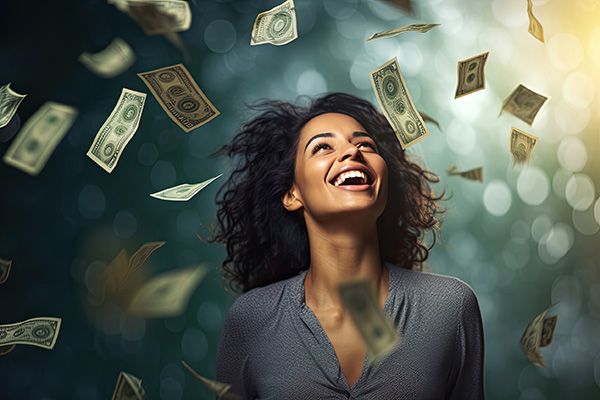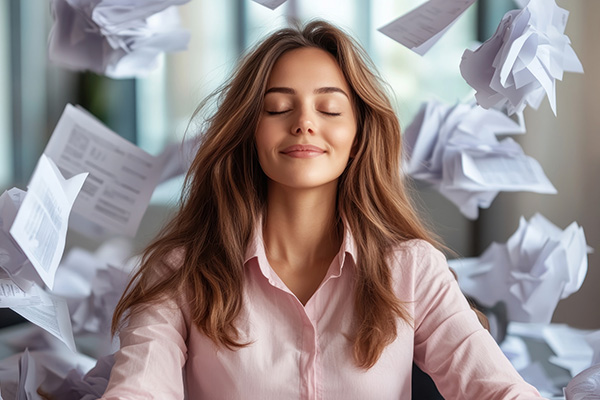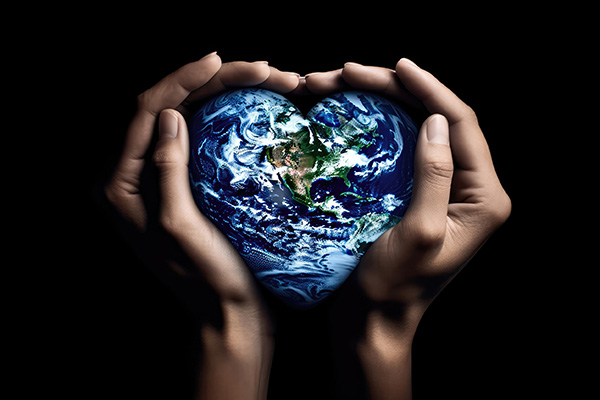forgiveness
Your Sacred Center Of Self-Love
 We all thrive on being loved. This is natural, of course, if you look back at humanity in history on an evolutionary level. Ancient people came together in tribes, families, and groups, to cultivate a place of safety, security, nurturance, and love.
We all thrive on being loved. This is natural, of course, if you look back at humanity in history on an evolutionary level. Ancient people came together in tribes, families, and groups, to cultivate a place of safety, security, nurturance, and love.
If you were different or stood out in any way, or even left the tribe, you were literally putting your own life at risk. This topic can be viewed from so many arenas, including psychological, spiritual, scientific, and psychic.
I often wonder how and when did we start defining ourselves by how others felt about us, and why did we believe that other’s thoughts about us were true? At what point in time did we allow others to define us? It’s as though we as humanity went into a deep trance.
We all know the phrase, “Love thyself first”. When did we forget this vital piece of information?
There are many ways we can come back in touch with this essential truth, but for the most part, our society does not support a lifestyle that would naturally lead us back to our sacred center of self-love.
How often do you take a moment to look in the mirror, or tell yourself, “I love you?” Most of us feel silly doing this, but it is very healing.
Have you ever met an older person who behaves in ways that are foolish or who just doesn’t give a hoot what anyone else thinks? My paternal grandfather used to throw dinner rolls across the table at me in fancy restaurants. While my parents and other family seated at the table would roll their eyes at my Grampy, I used to laugh hysterically!
The Secret To Manifesting An Abundant Life
 Many questions I am asked in psychic readings have to do with why someone’s life has not changed to what they want it to be.
Many questions I am asked in psychic readings have to do with why someone’s life has not changed to what they want it to be.
Some people feel they have religiously applied the teachings of Abraham-Hicks, or they closely followed the guidelines of the book The Secret by Rhonda Byrnes, or one of the many other popular methods for manifesting through the Law of Attraction, but nothing has changed.
And when I ask these people what they have changed in their inner being or subconscious mind to allow the new to come in, often I receive the response, “Oh, I have already done all that!”
However, had the person ‘done all that’ they would be manifesting their intentions. But they are not.
Some steps on the way to manifesting a better life may seem redundant – especially the detail work, the forgiveness and releasing, and the simply believing that it can come… and not specifically in the way that the person has set out in their mind.
Too often the person that is trying to get ahead in life, however, always struggles with money, or has it in their mind that they have to work 80 hours a week instead of 35 to get what they are seeking. That is not allowing, that is trying to make it happen in their way. And yet the answers are so much simpler.
As I look at love, finances, work, material items, health, I see the world is in a state of turmoil for the most part. I see bad things happening to good people, and those good people simply giving up hope. And then I see the ones that are constantly growing and getting further ahead without much effort.
Staying Calm Is Often The Key To Inner Peace
 Sometimes the emotional charge of something as simple as a misunderstood comment, or a statement taken out of context, can throw even the most level-headed person into a tailspin.
Sometimes the emotional charge of something as simple as a misunderstood comment, or a statement taken out of context, can throw even the most level-headed person into a tailspin.
Developing a general demeanor of good humor can assist you in dealing with some of these most difficult, embarrassing or awkward situations encountered in life.
Everyone handles things differently, doing the best they can with the information they have at the time.
Although, generally, the goal is to come to a better understanding and reach common ground, sometimes this takes much more time, effort and compromise than expected.
Although it is important to resolve an issue and clear the air, if possible, it is equally important to put each issue into context. Years from the date of the affront, will the issue be remembered at all and, if so, will it have anywhere near the importance that it did at the time?
Certain issues will never be forgotten, however, they can often be forgiven for the sake of all parties involved.
Long after the dust has settled, though, some people are inclined to continue to ruminate and replay negative scenarios over and over again.
This only serves to feed the flames of injustice and keeps the anger front of mind, long after the offending party has moved on physically and/or emotionally. As a result, rehashing the past can seem to perpetuate an aura of general negativity in your life.
Thorns Are Only There To Protect The Rose
 Each time we turn to unnecessary conflict, things turn into chaos. It stirs up the aura around each person involved. The ripples of anger and hurt affects everyone involved.
Each time we turn to unnecessary conflict, things turn into chaos. It stirs up the aura around each person involved. The ripples of anger and hurt affects everyone involved.
This doesn’t mean we can’t ever stand up for ourselves, or disagree. In fact, statistics prove that couples who never argue most often don’t last in their relationships.
A good storm now and then can clear up things and allow us opportunity to express the things we have been suppressing.
But often we hold it in for too long, and then it blows up. When this happens, the drama is often worse than it needed to be. We say things we later regret. We are even surprised by some of the things we say when we get this upset! Where did that come from?
Then, as time goes on, we want to make amends. Yet, those words caused a hurt that never really leaves. Sometimes an apology is no longer enough.
I know that it is hard to do, but it is mostly for the best not to stir the pot when it is already too late. The wisest way to handle issues is to bring them up early on. Talk and work them out before they blow up.
Love is like a rose. Roses are so beautiful, with their sweet smell, the velvet petals, brilliant colors, and heady scent. It overwhelms the senses.
Heal Your Life With The Great Law
 Do you have a lot of recurring drama in your life and the same negative situations repeating again and again? Do you keep attracting the same kind of toxic people and energy thieves into your life?
Do you have a lot of recurring drama in your life and the same negative situations repeating again and again? Do you keep attracting the same kind of toxic people and energy thieves into your life?
If so, you may benefit from learning more about the laws of karma and how to apply them in your everyday life, as these universal laws can transform your life for the better if we honor them in our spiritual practice and daily life.
Hindu and Buddhist spirituality recognizes 12 Laws of Karma. The first and most important of these is The Great Law, also known as the Law of Cause and Effect. This fundamental karmic law has helped me a lot to uncomplicate my own life since my spiritual awakening.
The Great Law teaches that whatever we sow, we shall reap. Every cause has an effect. Whatever put out into the world will eventually come back to us. Even the good and bad things we wish upon others will return to bless, or curse us.
Once we understand the role of The Great Law in our life, we become more aware of how we can eliminate negative patterns in our life and begin to attract more positive, new things.
The energy we emanate each day in the form of thoughts, wishes, fears, desires, attitudes, and beliefs will determine what will return to us as manifested experiences, events and circumstances.
Intention is everything in karmic law. For example, you start dating someone, but you live in fear of that person leaving you, or betraying you, so you are emanating an energy frequency of fear. In the end, it is very likely that you will lose that person. Fear attracts fear, love attracts love, and gratitude attracts gratitude. It’s that simple.
Maybe This Is How We Mend Our World
 I have certainly been trespassed against over the years, as I suspect you may have too: maligned, misunderstood, abused, betrayed. Many of us have been hurt and wounded.
I have certainly been trespassed against over the years, as I suspect you may have too: maligned, misunderstood, abused, betrayed. Many of us have been hurt and wounded.
For many of us lifetimes of pain also seem to rise to the surface now, as if this era has come to collect on both the debts and the blessings.
Some of my wounds in this lifetime occurred at a young and tender age, when there seemed to be no healing granted; when the best I could do then was retreat and lick my wounds alone. There was no wise elder at my side, no sacred ceremony to mark the grief, no balm from the spirit realms. Just the aching silence of pain, and the quiet hope that one day, perhaps, I would understand why.
Since that time so long ago, I have also seen much vindication. This ability to witness what I have called “the coming around of the going around,” hasn’t been only in seeing karmic issues resolved for little slights, but for big wounds as well.
I’ve watched as Spirit, with its own perfect timing, allowed clarity and closure to emerge…sometimes years later, sometimes through unexpected channels. There is a strange and sacred justice to the Universe that rarely moves on our schedule, but always, always moves.
Justice. Yes, always in the end. But what of forgiveness?
It all shifted for me when I came to know the ‘big picture’ in the powerful prayer, “forgive us our trespasses, as we forgive those that trespass against us.” These words are not just religious rote, but an energetic key to spiritual evolution. Continue reading
 There are angels and spirit guides that work with us daily. They change at times, depending on what we need. They are always within reach and can hear our requests, our tears, and our laughter. They feel our sadness and joy.
There are angels and spirit guides that work with us daily. They change at times, depending on what we need. They are always within reach and can hear our requests, our tears, and our laughter. They feel our sadness and joy.